22 Jul 2024
The Impact Of Mobile Apps On Australian Small Businesses
Shaun Bell
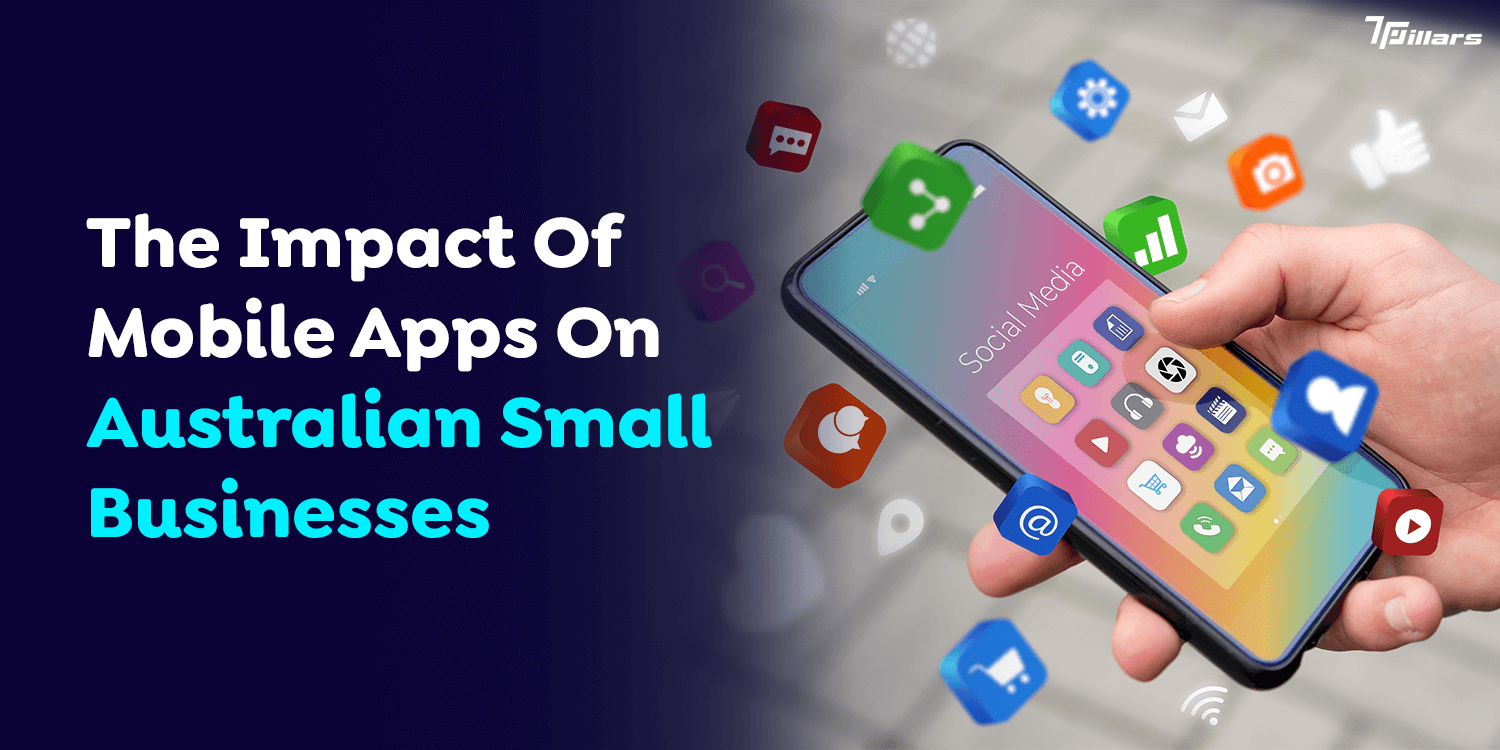
One asks how you can accomplish everything you want from any corner or junction of the world without any troubles, with small businesses not being an exception. Do you ever reflect on how small businesses come to function anywhere with no difficulty? Their not-so-secret weapon is a turbo-charged, in-the-palm-of-customers mobile phones with mobile apps as the future tech frontier.
All began not so long ago with the invention of what humanity knows today as the World Wide Web, and what seemed an impossible dream became real for millions of people around the world. Probably one of the most shining ones was a handheld device that could do everything from booking tickets for a show to playing games from anywhere and at any time.
The change in the tech world gave birth to mobile apps, which further helped small businesses widen their target audience by rewiring how they engage with customers for better revenue generation. Geographically, mobile apps have become a necessity for people over time due to the tremendous increase in population trending towards using smartphones for daily activities like grocery shopping, workouts, etc.
The small business experience has been boosted by mobile apps since they aid them in generating better revenue and engaging with customers to expand their business. Products or services on a limited basis are provided by small enterprises.
Due to the Internet and Internet-based applications not being as much of a craze as it is today, small businesses were then bound to work and target users in a particular geolocation—something that used to limit the success and capabilities of the business. With the invention of mobile phones, the storm of revolution that mobile apps brought about had rendered obsolete the days when small businesses were shackled in geography and forced to work in a particular location.
In earlier days, the only option businesses had was to create a website and cross their fingers waiting for a miracle, blissfully unaware of them being a beta version of a better technological evolution. Mobile applications have been proven a catalyst for small businesses desiring to expand their business in different locations. It has offered them a tool to reach new markets and people.
What Is A Mobile App?
It is a boon, in disguise, because of the ability to do any business from anywhere and at any time from a wireless device, making an application convenient for people with a hectic schedule.
A mobile application or an app is designed software that performs explicitly on wireless computing devices such as tablets and smartphones and offers varied functionality and even customized experiences to the users.
Have you ever wondered why mobile apps are created? In the beginning, mobile apps appeared to give maximum productivity aid in different ways like contact databases, calendars, and email, but users’ strong demand for apps in other fields, like mobile games, order tracking, etc., have led to the fast expansion of the same. There are plenty of apps running over the internet, which can be downloaded free through PlayStore by Android users and the App Store for iPhone users, offering unique features and services catering to different uses by the customers.
Nowadays, a mobile phone comes loaded with necessary apps like web browsers, calendars, etc., bundled together as pre-installed software to save users time spent downloading them. Some of the apps that are available in the market come for free of cost.
Some charge their users based on requirements, one-time purchases, and lastly on monthly subscriptions. Mobile apps have changed many sectors because of the freedom, speed, and convenience given to these sectors as it has resulted in having the ability to do anything from any location.
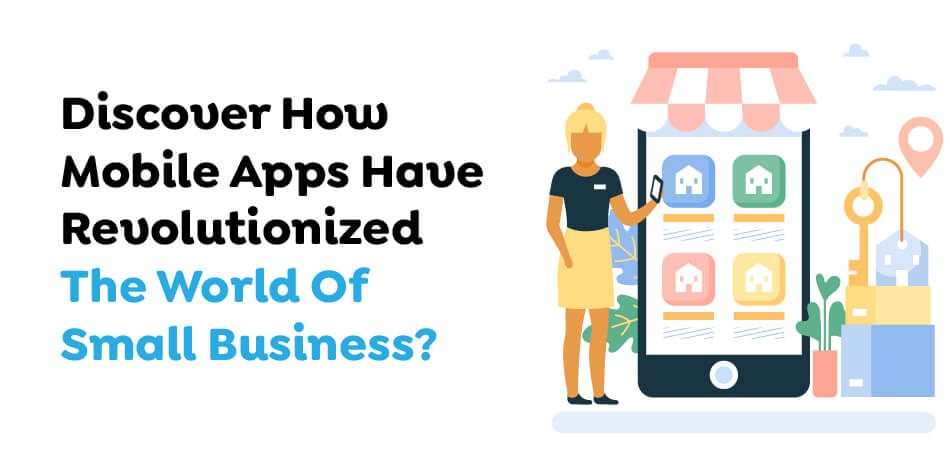
Growth Of Mobile Apps –
Over the past years, small businesses offering mobile apps have surged in Australia. The Australian mobile app market attracted $2.6 billion in 2023, showing a high percentage of usage of mobile technology for business. The need for such applications has also increased because of the high rates of smartphone adoption in Australia; there are now more than 21 million active smartphone users.
People spend an average of 4.5 hours per day using their mobile apps, states the Australian authoritative source. Doing business on this platform was another way to reach out to people.
The 5G coverage is blooming and will further sprawl in 2026, thus boosting the use of these mentioned applications with fast and reliable internet access throughout nooks and corners.
As more and more business visionaries across the board take mobile applications to be one of the most pivotal concepts in strategy, it is no wonder that small enterprises across Australia are increasingly using them not only for better customer service provision but also for facilitating online sales and delivering unique, yet engaging user experiences. This pattern is replicated in broader, global trends, underscoring increased app utilization with digital-first shifting business models.
Type Of Mobile Apps –
The fast-changing technological world has seen the invention of numerous apps in use today by millions of people to meet their daily unique needs, offering several functionalities to make their everyday lives easier.
Now, this has brought a revolution in the mobile app market, changing the whole experience of people from mundane to magic with the development of unique apps to suit their needs.
In today’s world there is an app for everything, divided into three basic categories:
Native App-
A native app is an application that targets a certain mobile platform, like an iPhone or Android—it means an app developed for Android won’t run on an Android device and vice versa. This type of app is not often used by app development companies to cut costs since it is an expensive option.
Native apps are written using tools and programming languages native to a platform to use the skills and features of a particular platform.
Web App:
A web-based application is defined as an application derived from conventional web technologies such as HTML, CSS, and JavaScript. Unlike the offline use case, access to the internet is required for proper functioning or the impossibility of accessing all app features. They operate just like the web applications running inside a browser, and all that can be much slower than the matching native software.
Hybrid App –
Hybrid apps are the best form of app because they can mix the best features of both native and web-based apps to make them ideal for app development companies.
These are more affordable to develop in comparison with web-based and native apps. This is because Hybrid apps can run on different platforms without adding to the development cost.
The only disadvantage is that these applications cannot provide the same look and feel on different mobile platforms.
Sub-Categories Of Small-Business Apps-
The three main categories of mobile apps are further divided into smaller categories depending on their use.
1. Accounting And Finance App-
Isn’t it great that you no longer need to depend on visiting your bank to deal with your finances, thanks to the invention of mobile accounting and finance apps that allow you to manage your finances and transactions from home? These apps enable you to track your expenses and budget accordingly for the coming months to avoid overspending by providing invoices for each purchase. It is one of the best types of apps for you if you are a small business owner looking to work from your home.
2. Customer Relationship Management App-
Wouldn’t it be wonderful if investors could reach out to you directly and collaborate with you to create a profitable business, eliminating the need for you to hunt down potential clients and grovel for money? A customer relationship management app allows you to foster business relations between potential clients and business owners by streamlining the communication between the two. These apps enable you to store detailed information on your current and potential clients and manage sales through the app with little to no issue.
3. Project Management And Collaboration App-
A Project Management and Collaboration app is the perfect match for business dealing with project work, as these apps help your team to plan and execute your projects under supervision efficiently by enhancing the team’s collaboration skills. Using these tools, a team leader can set up, monitor, and assign tasks to team members, resulting in productive output completed by the deadline.
4. Point Of Sale-Systems –
Isn’t it great that cash payments don’t remain the only form of transaction for small businesses, and they can now accept cashless payments, thus helping them make more sales? A Point Of System is a tool designed to help companies process sales transactions by keeping track of sales information, controlling inventory, and easing the payment process—all while offering insightful data on consumer behaviour and company performance.
5. Inventory-Management App-
You may now manage your inventory using inventory-management applications, eliminating the need for you to manually keep track of the supply of goods needed for your firm. These apps are a match made in heaven for businesses dealing in physical goods, like retail warehousing, etc., as they allow you to monitor the stocks in multiple locations simultaneously and manage the orders for low stocks.
6. E-commerce Apps -
The first thing that springs to mind when discussing mobile applications beneficial for small businesses is the well-known e-commerce apps, which have become immensely successful since their creation in the 1990s.
What can an e-commerce app do now to win over younger consumers and become their preferred option?
An e-commerce app is a programme made to make online buying for goods and services effortless by giving customers a way to peruse the collection, evaluate the products against other possibilities, choose their favourites, and make hassle-free purchases. These apps provide customers with a plethora of features to improve their purchasing experience, such as a user-friendly interface, a product catalogue, a shopping cart, and more.
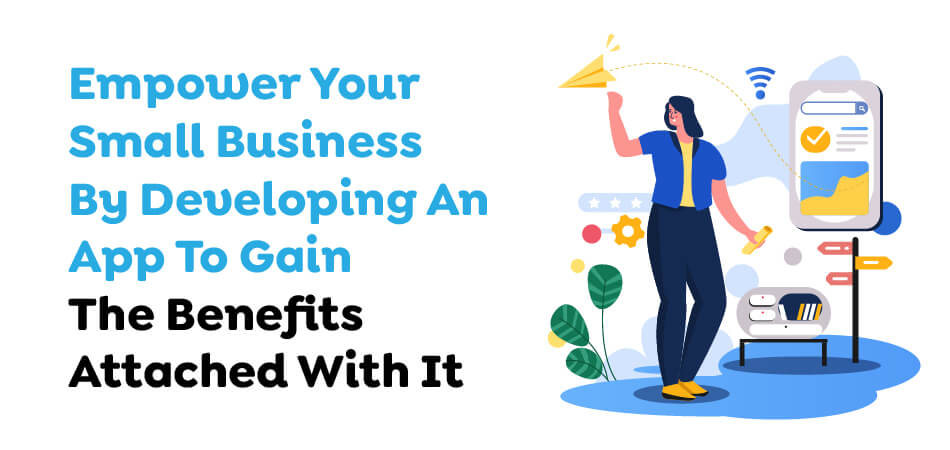
Benefits Of Apps For Small Businesses-
By now, you must know how rapidly the small business sector is growing and is predicted to do so in the coming years. An app for small businesses will provide your business with various benefits if you invest in its production, but a rise in competition in the market means your app will need to offer unique features to clients to ensure your app is successful.
The emergence of small business apps has fundamentally altered the business industry, making them essential tools for businesses looking to enhance their services and grow their clientele.
1. Enhanced Customer Engagement –
Apps are the hands-on and ultimate custom way to closely interact with your clients through push notifications, promotions, and loyalty programs. A mobile app for your small business helps you make close relations with your clients by understanding their needs, thus helping you provide enhanced experience to the clients.
2. Improved Customer Experience:
The convenience of mobile applications to not only navigate products to make a purchase or book service but to manage their entire experience through a simple and intuitive design makes your company’s customer experience so much more attractive.
3. Increased Brand Visibility:
When your app is installed on user devices like cell phones, tablets, and laptops your logo is visible and hence your brand will be remembered more often.
A mobile app helps you increase the visibility of your small business by providing you with a direct channel to interact with your clients and enhance their overall experience. It also enables you to collect and analyse a client’s data to help you give a personalized experience to the users, thus increasing their love for you.
4. Better Customer Insights:
By using the said applications, organizations also gather customer data such as behavioural information, preferences, and purchasing averages which are data sources required for marketing approaches development and new products.
These apps help businesses promote themselves among the target audience efficiently by enabling them to understand their needs and wants.
5. Competitive Edge-
A mobile app in your business makes you stand out against competitors who are not up to it, thus improving customer interactions and optimising the entire process. This benefit gives you a competitive advantage by raising brand awareness, creating more sales opportunities, and cultivating client loyalty.
6. Streamlined Operations:
Apps may accomplish this function by employing tools to automatically perform inventory management, order tracking, and customer care services, which allows a brand to focus on the primary strategic goals and has a constructive impact on operational efficiency.
7. Enhanced Marketing Opportunities-
Inbuilt into the app are super-efficient tools like in-app promotions, special offers, and social media interaction that support marketing and customer engagement, thus reducing the workload on business owners.
8. Increased Sales-
Friendly mechanisms such as in-app payments and order tracking are great app tools used in enterprises that want their sales to grow due to the better conversion rate by offering real-time updates and streamlining the purchasing process.
9. Customer Loyalty-
At the same time, organizing perks in the app, like collecting bonus points and rewards loyalty points that can be used for a discount on the next purchase, seems to be a perfect match for regular business reiteration as it fosters customer loyalty.
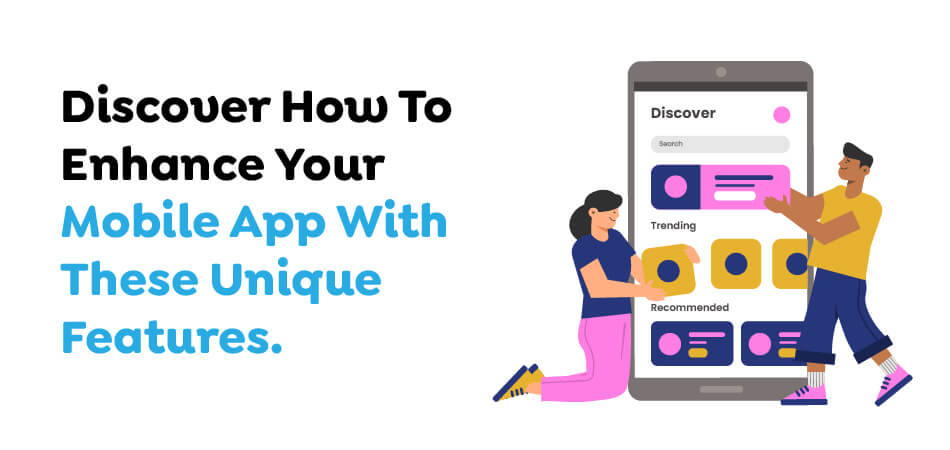
Key Features To Have In An App For Your Small Business
While developing an app for your small business there are an array of things that you need to ensure if you want your app to be a market hit. There are a lot of vultures in the app development market ready to take your spot, and you need to ensure your place in the market remains safe by providing a series of unique features to the target audience to gain their loyalty.
1. Login/ Signup –
The ability to sign up or log in to obtain comprehensive data about users and their preferences for different goods is a crucial component of any small business app.
Through this feature, users can register on the app and keep personal data such as names, phone numbers, addresses, and favourite goods between themselves and business owners. A small business owner can then utilise this data to tailor the platform experience for their target customers.
2. User-Friendly App –
The most pivotal factor in drawing a user to your app and keeping them there is having a clear, easy-to-use interface that makes it simple for users to move between the app’s many sections. It is true regardless of the kind of app you want to create. When users can quickly locate the tools or information they need, they are more likely to become involved, use your app often, and refer others to it.
3. Product And Service Listing –
If you are a small business looking into building an app to promote your app among the target audience, then you need to integrate a product listing feature in the app to allow the users to have a quick scan of the products and decide if they are interested in purchasing them. You should provide detailed descriptions and images of your products to the clients to avoid confusion and the risk of them returning products.
4. Search And Filtering –
Search And Filtering is another pivotal feature that you need to have in your app for your small business, as it allows user to browse through their favourite product categories and make purchases if they like something. This improves their overall experience by saving their time and reducing frustration since consumers can get the information, they require fast and decide what to buy without waiting around or getting confused.
5. Online Ordering –
An app is useless if it doesn’t allow your clients to browse and choose their favourite goods and order them seamlessly, as the prime need for an app is to provide a convenient and remarkable experience to the customers. You need to integrate the online ordering feature in your app that enables your users to place orders or book a service directly without any hassle.
6. Payment Integration –
These days, only a few people pay with cash; therefore, for a smooth checkout process, you must provide your users with alternative payment methods. Ensure to integrate a one-click checkout option in your app to make it simple for consumers who have purchased with you in the past to purchase goods through several safe payment gateways. It will give users flexibility and control over the payment methods that they prefer.
7. Push Notifications –
It is pivotal for small business owners to continue to gain attention from the target audience if they don’t want to run out of business, and the best method to do this is to keep them engaged with the brand through a push notifications feature. You need to integrate a push notification feature in the app to inform customers about the most recent deals, recommendations, and trends in the category they have selected.
8. Loyalty Programs –
Loyalty programs are equally pivotal to attracting customers and keeping them engaged with the app for the long term, as they provide prizes and incentives that promote repurchases and cultivate in users a sense of worth and appreciation. This feature will help you retain your customers for a longer period, as everyone loves to buy their favourite goods at a discounted price to save big bucks.
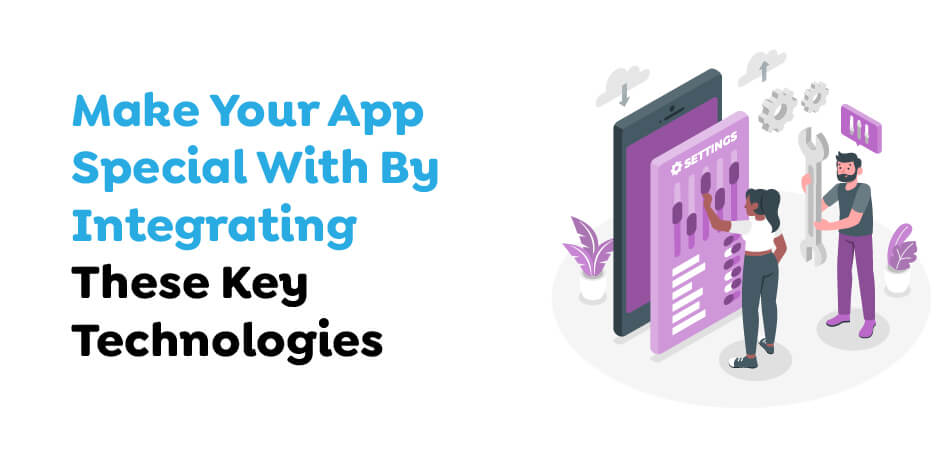
Key Technologies To Have In Your Small Business App-
1. Mobile App Development Framework –
For your app to offer a flawless user experience and guarantee maximum performance, scalability, and user engagement, it is essential to select the appropriate app development framework.
React Native and Flutter are the two best framework options for creating apps since they facilitate excellent cross-platform development and enable apps to function flawlessly on Android and iPhone.
Use a React Native app development company to maximise the speed and cost of development cycles for your framework. A reputable iPhone app development company or an Android app development company can be the best option for developing the app’s framework depending on your needs.
2. Artificial Intelligence And Machine Learning –
Artificial Intelligence is a booming technology with the potential to transform various sectors by delivering sophisticated data analytics, streamlining workflows, improving decision-making, and customising user interfaces.
Entrepreneurs may employ AI for comprehensive consumer behaviour research, enabling data-driven decision-making, with the assistance of a trustworthy AI app development business in Australia. App development companies can employ machine languages, such as Natural Language Processing, to incorporate chatbots and virtual assistants into their apps. This will improve the user experience with customer care.
The recommendation engine, which employs several algorithms to offer users products based on their past behaviour, is another innovative technology that app development companies may leverage to enhance the user’s overall experience.
3. Blockchain Technology-
Blockchain Technology is another brilliant technology with the potential to change the game for small businesses by providing a transparent ledger system that will enhance the security of every financial transaction, thus encouraging more clients to purchase from your app over your competitors.
4. Content Management Systems-
Even though a user may stumble on your app by mistake, you can seize the opportunity to engage them and make them stay on your app by providing them with brilliant content quality. Integrating content management system technology will help you enhance the overall experience of your clients by providing dynamic and engaging content that will compel them to stay.
5. Security Protocols –
It is pivotal to integrate security protocol technologies into small business apps to protect user’s data and maintain trust. One can devise a security strategy by using encryption codes, ensuring safe access to the App, and through regular updating of the applications. These measures will not only boost confidence among users but also protect sensitive information while enhancing on secureness of business transactions against possible ill-intentioned individuals.
6. Augmented Reality –
Augmented Reality is one of the unique technologies that you can integrate into your app to provide a remarkable experience to your customers by allowing them to try their selected goods virtually before making the final purchase, thus avoiding the risk of product return. You can integrate a fun quirky feature like “Try Me” in your app using this technology to help you enhance the overall experience of users.
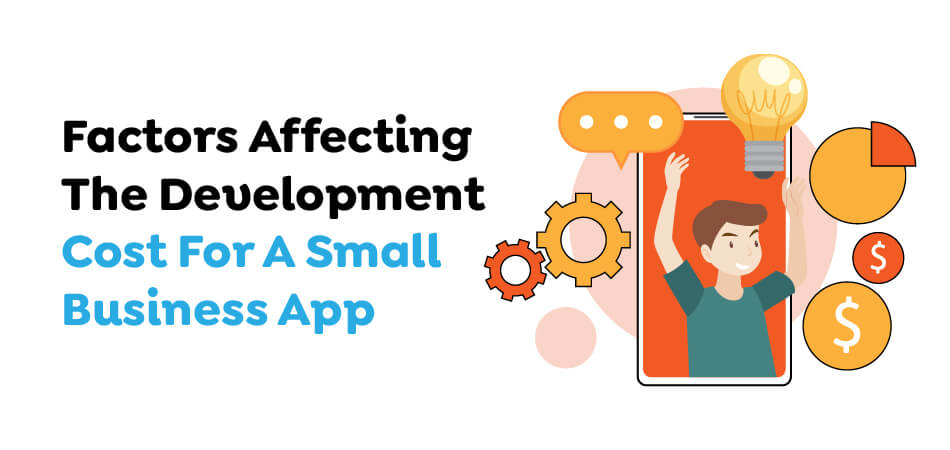
Cost Of Developing An App For Small Business –
The dynamic nature of technology and the increasing demand for mobile apps have led to an increase in investment in mobile app development for small enterprises by entrepreneurs. Several elements, like features, team, complexity, development partner, etc., influence how much it costs to design a retail mobile app.
A basic app in Australia usually costs between AUD 10,000 and AUD 50,000 to design depending on the features and complexities you choose. Apps with greater features and complexity can run you anywhere from AUD 50,000 to AUD 150,000 or more. To prevent unforeseen expenses, it’s critical to obtain a thorough quote and comprehend exactly what is included in the pricing.
Conclusion –
The new strategy of mobile apps has very much changed the face of Australia’s small businesses with an abundance of opportunities and challenges. As time passed, advanced tools enabled small enterprises to improve customer engagement, smoothen processes involved, better their efficiency, and bounce back on competitiveness where the market is fast changing.
Mobile applications are making it possible for small businesses to reach customers on personal levels. Through push notifications, businesses keep their target audience updated about promotions, new products, or events, thus staying in the thick of things with a more engaged and loyal customer base. This line of communication will not only help to nurture relationships but also provide the ability for businesses to respond to the needs and feedback of customers in real-time.
In today’s cutthroat industry, our team at 7 Pillars, an app development company, can assist you in growing your small business by creating and executing personalised mobile solutions that are suited to your unique requirements, improving client engagement, optimising operations, and spurring growth.
Our technocrats at 7 Pillars, a leading app development company believe in taking a client-centric approach to help our clients achieve their dream app by integrating the latest technologies and trends to ensure it is an instant hit in the market. Our technocrats will guide you through the intricacies of app development by offering professional advice throughout the process.
So, if are a small business owner with a desire to develop an app to expand your reach, then look no further and contact our team at 7 Pillars today to turn your brilliant idea into a brilliant app.








